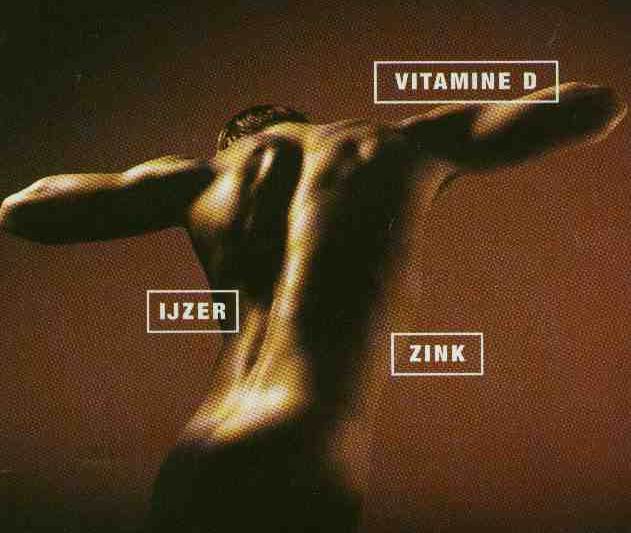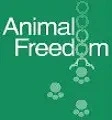Does a vegan suffer under principles or leading a free life? |
Calvin is the incarnate ecclesiastical discipline.
Opposite his strict religious doctrine is the Catholics'
more Burgundian outlook on life.
The passionate doctrine of Calvin is reminiscent of
the strict, disciplined diet pattern of the vegan. This
prompts us to ask: "is it so attractive to be this
strict with yourself?" The answer is a whole-hearted
"yes".
Many people are unfamiliar with veganism. What's so
special about a vegan? A vegan uses no products for
which animals were used at all, so he doesn't eat meat,
fish or dairy, he doesn't use wool, leather or honey.
This limits his choice of foodstuffs, because after
all animal products are almost everywhere. Even when
you eat a simple biscuit you have to be careful. And
I'm not even starting on the animal ingredients that
aren't mentioned on wrappings.  Most
cooks don't know what to do when a vegan comes
to dinner. And vegans have to pick out their restaurants
very carefully. Fortunately, it is much easier
at home. Because, think about it, what choice
is left in foodstuffs when meat, fish and dairy
are not an option? For starters, an enormous variety
in greens, many kinds of legumes, grains, delicious
nuts and fruits, to name a few things. The possibilities
are endlessly greater than you would think at
first glance. And variation is the most important
advice, something that is often hard to find in
a standard meat-eating Dutchman's diet. The only
real limitation for vegans is vitamin
B-12, which they have to supplement chemically
if they don't want to violate their principles.
For whom it concerns, the benefit of veganism is a very
clear conscience. And vegans don't have to worry about
contracting Creutzfeldt-Jacob. Many meat-eaters may
well be carrying this disease already as a consequence
of the BSE that today affects almost all farm animals,
from cows to sheep to goats.
But let's go back to the parallel with Calvin. Calvin
assumed the predestination of man and animal. He thought
that animals were predestined. People may believe that,
but that doesn't mean that animals are destined to lead
their lives in factory farming. And people may feel
they have a right to eat animals, but that doesn't mean that they may take away the animals' freedom to lead
natural lives.
For a vegan, the freedom to live a natural life is both
a means and an end. It is the paradoxical situation
of people that they are born free but still have to
make choices during their lives to keep this freedom.
Animals' lives have always attracted certain types of
people, because freedom is the natural situation of
an animal. Despite the superior intelligence of man,
this has not guaranteed his freedom. It has given people
a position of power with regard to animals, but also
the duty to supply conditions for animals that do not
unjustly limit their freedom.
Vegans who - with their lifestyles - increase their
own freedom as well as that of animals, live passionate
lives, in which passion should be taken as "driven"
and not as "suffering from". Most
cooks don't know what to do when a vegan comes
to dinner. And vegans have to pick out their restaurants
very carefully. Fortunately, it is much easier
at home. Because, think about it, what choice
is left in foodstuffs when meat, fish and dairy
are not an option? For starters, an enormous variety
in greens, many kinds of legumes, grains, delicious
nuts and fruits, to name a few things. The possibilities
are endlessly greater than you would think at
first glance. And variation is the most important
advice, something that is often hard to find in
a standard meat-eating Dutchman's diet. The only
real limitation for vegans is vitamin
B-12, which they have to supplement chemically
if they don't want to violate their principles.
For whom it concerns, the benefit of veganism is a very
clear conscience. And vegans don't have to worry about
contracting Creutzfeldt-Jacob. Many meat-eaters may
well be carrying this disease already as a consequence
of the BSE that today affects almost all farm animals,
from cows to sheep to goats.
But let's go back to the parallel with Calvin. Calvin
assumed the predestination of man and animal. He thought
that animals were predestined. People may believe that,
but that doesn't mean that animals are destined to lead
their lives in factory farming. And people may feel
they have a right to eat animals, but that doesn't mean that they may take away the animals' freedom to lead
natural lives.
For a vegan, the freedom to live a natural life is both
a means and an end. It is the paradoxical situation
of people that they are born free but still have to
make choices during their lives to keep this freedom.
Animals' lives have always attracted certain types of
people, because freedom is the natural situation of
an animal. Despite the superior intelligence of man,
this has not guaranteed his freedom. It has given people
a position of power with regard to animals, but also
the duty to supply conditions for animals that do not
unjustly limit their freedom.
Vegans who - with their lifestyles - increase their
own freedom as well as that of animals, live passionate
lives, in which passion should be taken as "driven"
and not as "suffering from". |
|
|

